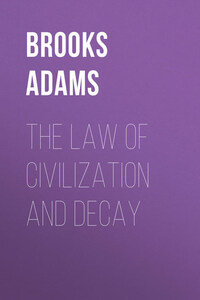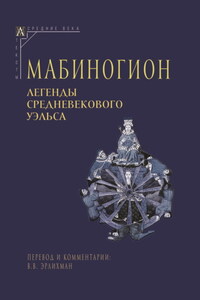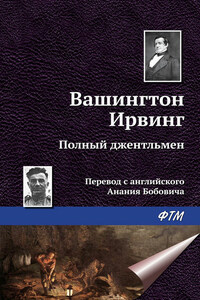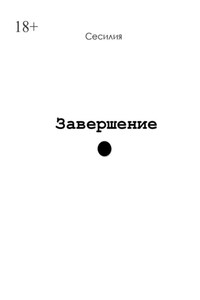In offering to the public a second edition of The Law of Civilization and Decay I take the opportunity to say emphatically that such value as the essay may have lies in its freedom from any preconceived bias. All theories contained in the book, whether religious or economic, are the effect, and not the cause, of the way in which the facts unfolded themselves. I have been passive.
The value of history lies not in the multitude of facts collected, but in their relation to each other, and in this respect an author can have no larger responsibility than any other scientific observer. If the sequence of events seems to indicate the existence of a law governing social development, such a law may be suggested, but to approve or disapprove of it would be as futile as to discuss the moral bearings of gravitation.
Some years ago, when writing a sketch of the history of the colony of Massachusetts Bay, I became deeply interested in certain religious aspects of the Reformation, which seemed hardly reconcilable with the theories usually advanced to explain them. After the book had been published, I continued reading theology, and, step by step, was led back, through the schoolmen and the crusades, to the revival of the pilgrimage to Palestine, which followed upon the conversion of the Huns. As ferocious pagans, the Huns had long closed the road to Constantinople; but the change which swept over Europe after the year 1000, when Saint Stephen was crowned, was unmistakable; the West received an impulsion from the East. I thus became convinced that religious enthusiasm, which, by stimulating the pilgrimage, restored communication between the Bosphorus and the Rhine, was the power which produced the accelerated movement culminating in modern centralization.
Meanwhile I thought I had discovered not only that faith, during the eleventh, twelfth, and early thirteenth centuries, spoke by preference through architecture, but also that in France and Syria, at least, a precise relation existed between the ecclesiastical and military systems of building, and that the one could not be understood without the other. In the commercial cities of the same epoch, on the contrary, the religious idea assumed no definite form of artistic expression, for the Gothic never flourished in Venice, Genoa, Pisa, or Florence, nor did any pure school of architecture thrive in the mercantile atmosphere. Furthermore, commerce from the outset seemed antagonistic to the imagination, for a universal decay of architecture set in throughout Europe after the great commercial expansion of the thirteenth century; and the inference I drew from these facts was, that the economic instinct must have chosen some other medium by which to express itself. My observations led me to suppose that the coinage might be such a medium, and I ultimately concluded that, if the development of a mercantile community is to be understood, it must be approached through its money.
Another conviction forced upon my mind, by the examination of long periods of history, was the exceedingly small part played by conscious thought in moulding the fate of men. At the moment of action the human being almost invariably obeys an instinct, like an animal; only after action has ceased does he reflect.
These controlling instincts are involuntary, and divide men into species distinct enough to cause opposite effects under identical conditions. For instance, impelled by fear, one type will rush upon an enemy, and another will run away; while the love of women or of money has stamped certain races as sharply as ferocity or cunning has stamped the lion or the fox.
Like other personal characteristics, the peculiarities of the mind are apparently strongly hereditary, and, if these instincts be transmitted from generation to generation, it is plain that, as the external world changes, those who receive this heritage must rise or fall in the social scale, according as their nervous system is well or ill adapted to the conditions to which they are born. Nothing is commoner, for example, than to find families who have been famous in one century sinking into obscurity in the next, not because the children have degenerated, but because a certain field of activity which afforded the ancestor full scope, has been closed against his offspring. Particularly has this been true in revolutionary epochs such as the Reformation; and families so situated have very generally become extinct.
When this stage had been reached, the Reformation began to wear a new aspect, but several years elapsed before I saw whither my studies led. Only very slowly did a sequence of cause and effect take shape in my mind, a sequence wholly unexpected in character, whose growth resembled the arrangement of the fragments of an inscription, which cannot be read until the stones have been set in a determined order. Finally, as the historical work neared an end, I perceived that the intellectual phenomena under examination fell into a series which seemed to correspond, somewhat closely, with the laws which are supposed to regulate the movements of the material universe.








